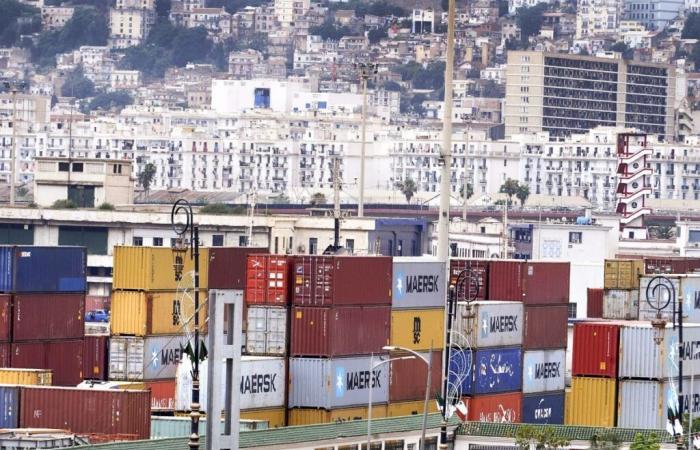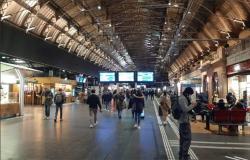
By Ali Oulouch (in Algiers)
“I have resisted for years the Algerian bureaucracy, the mistrust of our partners in France with regard to our country's market, but now, I no longer know if I have the strength to continue. » In his tastefully decorated office, at the top of an Algerian tower near the airport, Mourad, a Franco-Algerian entrepreneur, does not hide his despondency. The succession of crises between his two countries inflicts on him a “experiencing emotional lift”. He remembers having “spent the summer holding his stomach”suspended from an announcement of retaliatory measures promised by Algiers against Paris since France's recognition of the “Moroccanness” of Western Sahara. Algeria, which supports the holding of a referendum and supports the Polisario separatists, had threatened: “The government will draw all the consequences that arise from this French decision. »
Western Sahara, business… why Macron is banking on Morocco rather than Algeria
Withdrawal of the ambassador to Paris, suspension of cooperation, stopping the return of Algerians in an irregular situation… The reprisals began almost timidly. Then, except for military cooperation, all channels gradually closed.
“An anti-French hardening”
At the beginning of October, economic operators received very worrying signals. The Algerian authorities, via Algex, an import-export regulatory body, have blocked the authorizations necessary for any import from France. Which is not insignificant: last year, Paris was Algeria's second supplier and third customer. Nearly 450 French companies and entrepreneurs are established in this country, employing around 40,000 employees (and more than 100,000 indirect jobs), according to Medef.
Algeria is also France's leading export market to Africa and around a quarter of its inputs come from France. Algiers also canceled its participation in the Paris International Agri-Food Exhibition, and above all excluded France, the leading supplier of soft wheat in 2021-2022, from its latest call for tenders.
“A little music in the air announced an anti-French hardening”remembers a Franco-Algerian businessman. During his visit to Rabat at the end of last October, Emmanuel Macron spoke to the Moroccan Parliament. A speech felt as a real provocation by Algiers. Less than a week later, the banks were verbally informed of the freezing of bank direct debits required for imports.
Negative effects on the country's image
“Dozens of customers called me, worried about seeing an outlet closetestifies a boss of a major French label. We can circumvent the ban by shipping the goods from another port, in a different country, by issuing invoices elsewhere or even by stamping our products with another partner brand, non-French… But this will impact the price for the consumer Algerian. »
A breakdown in commercial relations would cause irreversible damage, first of all for the Algerian market: from the maintenance of underground telecommunications cables to spare parts for public service vehicles, from bread improvers to smart cards, etc.
Not to mention the negative effects on the country's image and its attractiveness to investors. This is undoubtedly why Algiers quickly denied any trade restrictions. “It seems that the authorities wanted to apply these blockages on the sly so as not to have to confront the European Union (EU)says someone close to the case. Because ultimately, the breakdown of commercial relations is not a Franco-Algerian problem. It actually involves a violation of the association agreement with the EU. »
Targeted surveys
For business circles, however, it is not necessary to “to have illusions”. “The blows will continue, quietly, assures a business leader in the agri-food industry, faced with the blocking of his inputs imported from France. The delay of an authorization here, the non-response of a bank there: the Algerians have a thousand ways to put obstacles in our way. They released the domiciliations? Yes, but the Bank of Algeria blocks the funds. In fact, imports cannot resume…”
To make matters worse, these same circles are worried about seeing the cases of Kamel Daoud (prosecuted in Algeria within the framework of the charter for national reconciliation) and Boualem Sansal (arrested in Algiers and prosecuted in particular for attacks on the integrity of the national territory) “degrade an already weakened bilateral relationship”.
Read alsoMemory, economy, immigration… Paris and Algiers seek common ground
Already, a new episode is looming. According to media close to power, Algeria has launched investigations to “identify the French companies involved in the plunder of the wealth of Western Sahara”. Among them: BNP Paribas, Société Générale, Axa and Air France-KLM. Other firms would be targeted, those recently engaged, thanks to the rapprochement between Paris and Rabat, in projects, particularly energy, in the part of Western Sahara under Moroccan authority.
Algiers wants in particular to rely on the decision of the Court of Justice of the European Union, dated October 4, invalidating two trade agreements, on fishing and agriculture, concluded between Morocco and the EU and including the territories of Western Sahara. A legal decision which risks complicating Emmanuel Macron's wishes. He had promised, during his trip to Rabat, that French companies “would support development” of Western Sahara under Moroccan control.
A Spanish precedent
France is not the first country to suffer the consequences of its change of heart on Western Sahara. Madrid paid the price after recognizing, in March 2022, the sovereignty of Morocco over this territory: suspension of air links, freezing of the friendship treaty, and, above all, complete cessation of imports. Some 129,475 Spanish companies then ceased to have trade agreements with Algeria and the rate of decline in exports had reached 93% by the end of 2022, according to the government agency Icex. The European Union even denounced last June «obstacles» to European imports and investment, particularly Spanish, and threatened Algiers with recourse to arbitration. “Algeria is a sovereign country, which has no external debt and does not tolerate diktat”replied the Algerian Minister of Commerce. “The France-Algeria business remains more important than that with Madrid, wanted to hope, at the time, for a sherpa in the bilateral relationship. Without forgetting human ties, we cannot, for example, suspend flights [près de 280 par semaine]. »





